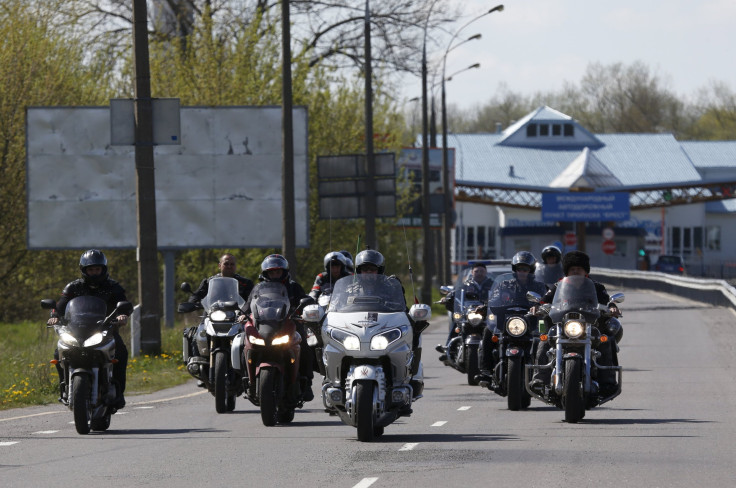Poland Kills Russian 'Night Wolves' Biker Gang's Plan To Ride To Berlin Like The Red Army

A gang of Russian ultranationalist bikers who were planning to ride to Berlin to replicate the route the Soviet army took in its victory over Nazi Germany in 1945 has been stopped at the Polish border. The small group of around 10 bikers from the Night Wolves, which may have been the avant-garde of a larger gang, passed through the Belorussian border but was turned back by Polish border guards, who also revoked visas that would have enabled the bikers to travel freely in the European Union for the entirety of the trip.
“These people will not cross into Poland. Each of them will receive a separate refusal,” said Dariusz Sienicki, a spokesperson for the Polish border guards, as quoted by the Guardian.
The group, which has around 5,000 members and a number of business interests around Russia, started out in the early 1980s hosting illegal rock concerts in the then Soviet Union. It has since morphed into a right-wing organization defending traditional Russian values and defined by a particularly virulent brand of homophobia, led by a picturesque character, Alexander Zaldostanov, known as "The Surgeon."
Recently, some of the group’s members have been included in U.S. and European sanctions against Russia, for allegedly fighting in the East Ukraine war.
The planned trip, which would have seen the bikers travel through Russia, Belarus, Poland, Slovakia, the Czech Republic, Austria and Germany, caused outrage across Europe as politicians in Poland and Germany saw it as an act of provocation, stemming from the recent animosity that exists between Russia and Europe over the war in East Ukraine and the annexation of Crimea in 2014.
Zaldostanov, who is a personal friend of Russian president Vladimir Putin, has vowed that the group will overcome the Polish refusal and make it to Berlin in time for the Russian Victory Day on May 9, when the nation commemorates the surrender of Nazi Germany. This year the festivity, which is celebrated with great fanfare and military parades in Russia, takes a special significance, as it marks the 70th anniversary of the victory in what Russians call the Great Patriotic War, in which the country lost more than 20 million people.
However, assuming that Ukraine would also deny the pro-Russian gang entry through its territory, the only realistic route would involve traveling back into Russia and going north to Finland. If the Wolves were granted access into Finland, they would then be free to take a ferry from Helsinki to Stockholm,from which it would be a simple ride down through Sweden and Denmark and on to Berlin. After news of the Polish refusal, the Russian Foreign Ministry demanded an explanation of Poland’s actions.
"We are demanding explanations from the Polish authorities and decisively condemn their actions testifying to the readiness to rewrite history and in essence blaspheme, for opportunistic reasons, over the feat of those who saved Poland and the world from fascism," said a Russian Foreign Ministry statement.
© Copyright IBTimes 2024. All rights reserved.












